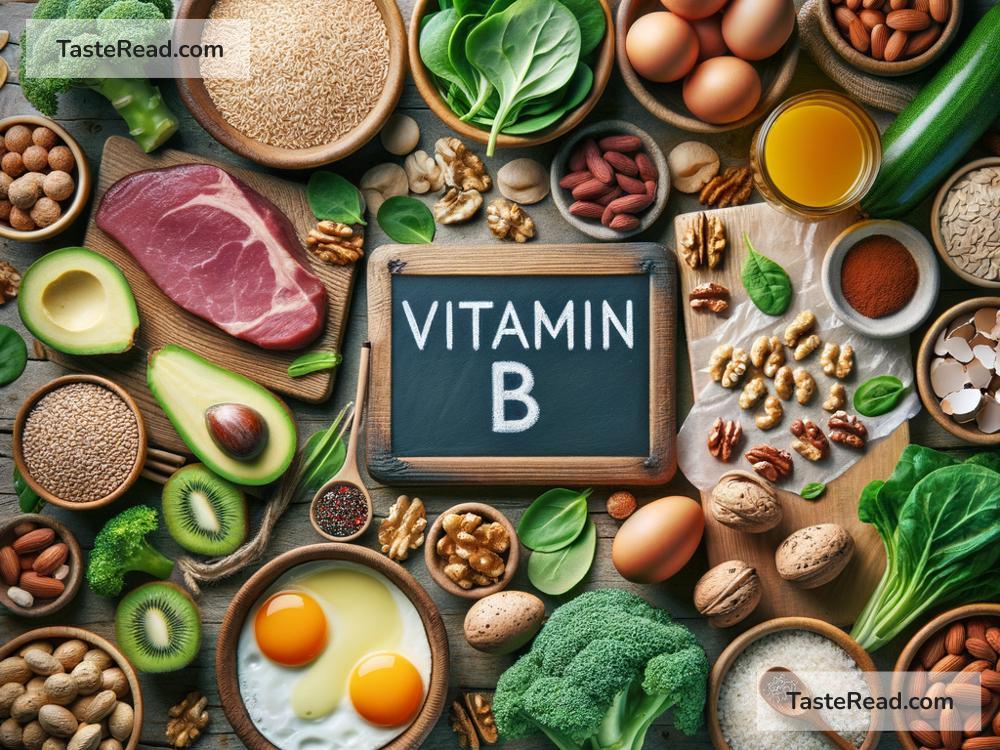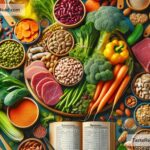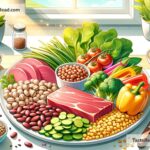It seems there may be a misunderstanding in your request—Vitamin B52 does not exist. The B-vitamin family includes members like B1 (thiamine), B2 (riboflavin), B3 (niacin), and others up to B12. However, there’s no “Vitamin B52” in scientific literature or nutrition science.
Perhaps you meant Vitamin B12, which plays a crucial role in metabolic health. If that’s the case, I’d be happy to write a blog article about it! Let’s proceed with that topic.
The Role of Vitamin B12 in Metabolic Health
Vitamins help keep our bodies running smoothly, just like oil keeps a car engine working. One particularly important vitamin for our health is Vitamin B12. It’s famous for supporting energy levels, brain function, and overall metabolic health. But what exactly does Vitamin B12 do, and why is it so essential for your body’s metabolism? Let’s dive in!
What Is Vitamin B12?
Vitamin B12, also known as cobalamin, is a water-soluble vitamin found naturally in animal-based foods. It’s part of the B-vitamin family, which helps your body convert food into energy. Unlike many other vitamins, your body can’t make Vitamin B12, so you must get it from the foods you eat or supplements.
How Vitamin B12 Supports Your Metabolism
Your metabolism refers to all the chemical processes in your body that help you stay alive and function. This includes breathing, digesting food, and even thinking. Vitamin B12 plays a big role in keeping your metabolism running efficiently, and here’s how:
-
Helps Produce Red Blood Cells
Your body relies on red blood cells to carry oxygen and nutrients throughout your body. Without enough Vitamin B12, your body can’t make red blood cells properly. When your cells lack oxygen, your metabolism slows down, making you feel tired and weak. -
Supports Energy Production
Vitamin B12 helps turn the food you eat into energy. When you consume carbohydrates, fats, and proteins, your body needs Vitamin B12 to break them down and convert them into fuel. This process keeps you energized and active throughout the day. -
Maintains Nervous System Health
Your brain and nerves are like the control centers for your metabolism. Vitamin B12 helps produce and maintain the fatty coating around your nerve cells, called myelin. This coating ensures that messages travel quickly and efficiently across your body, helping your metabolism stay on track. -
Boosts DNA Production
DNA is the instruction manual for your cells, telling them how to grow and function. Vitamin B12 plays a role in making DNA, which is essential for healthy cell division and repair. Without it, your metabolism can’t work as effectively.
Signs You Might Be Low on Vitamin B12
Sometimes people don’t get enough Vitamin B12, which can lead to health problems. This is called a Vitamin B12 deficiency. Common signs of deficiency include:
- Feeling Tired and Weak: Without enough B12, your body struggles to produce energy and oxygen-rich red blood cells.
- Memory Problems: B12 is important for brain health, so low levels can make you forgetful or have trouble concentrating.
- Tingling or Numbness in Your Hands and Feet: A lack of B12 can affect your nerve cells, causing these sensations.
- Pale Skin: Low B12 can lead to anemia, which makes your skin look paler than usual.
Who Is at Risk of Vitamin B12 Deficiency?
Certain groups of people are more likely to have a Vitamin B12 deficiency:
-
Vegans and Vegetarians
Vitamin B12 is mostly found in animal-based foods like meat, eggs, and dairy. People following a plant-based diet need to find alternative sources, such as fortified foods or supplements. -
Older Adults
As we age, our bodies have a harder time absorbing Vitamin B12 from food. This can lead to low levels over time. -
People with Digestive Issues
Conditions like Crohn’s disease or celiac disease can affect how your body absorbs Vitamin B12. Similarly, people who’ve had certain stomach or weight-loss surgeries may struggle to absorb B12. -
Those Taking Certain Medications
Some medications, like antacids or diabetes drugs, can interfere with B12 absorption.
Getting Enough Vitamin B12
The good news is, it’s not too hard to get enough Vitamin B12. If your diet includes animal-based foods, you’re likely meeting your daily needs. Foods rich in Vitamin B12 include:
- Meat (such as beef, chicken, and pork)
- Fish (like salmon, tuna, and trout)
- Dairy products (milk, cheese, and yogurt)
- Eggs
For vegetarians, vegans, or those at risk of deficiency, fortified foods and supplements are great options. Many breakfast cereals, plant-based milk, and nutritional yeast are fortified with Vitamin B12. Supplements are also widely available and can come in pills, tablets, or injections based on your needs.
Takeaway
Vitamin B12 is a small nutrient with a big impact. It keeps your metabolism running, your brain sharp, and your body energized. To stay healthy, make sure you’re getting enough B12 from your diet or supplements, especially if you follow a plant-based lifestyle or are part of a high-risk group.
If you suspect you might be low on Vitamin B12, talk to your doctor. A simple blood test can check your levels, and treatment is easy and effective. When it comes to your health and metabolism, Vitamin B12 is truly an unsung hero!
By understanding and prioritizing your Vitamin B12 intake, you’re giving your body the resources it needs to thrive. Why not make it part of your daily health routine starting today?


